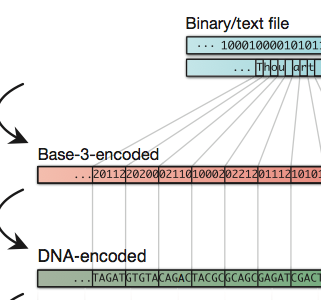A good NPR article based on a 2014 paper that finds that students who hand-write their notes have to think more about what they choose to write and so remember better than students who just transcribe lectures on their computers.
Tag: npr
Conflict over water
One of the articles my students brought to our Environmental Science discussion was about the growing fears about wars over water. Even within the U.S.A. there are significant conflicts, as demonstrated by this NPR article.
Texas has tried to buy Oklahoma water from the state, its cities and towns, and its Native American tribes. But Oklahoma lawmakers have blocked those efforts with a string of laws restricting out-of-state water exports.
The view in Texas is that Oklahoma isn’t even using its full allocation of Red River water. Oklahomans respond that Texas hasn’t gotten serious enough about conservation.
“Our poor, poor thirsty people in Dallas, Texas,” muses state Sen. Jerry Ellis, a Democrat who represents southeastern Oklahoma. “There’s nobody thirsty in Dallas, Texas.”
— Wertz,J., 2013: Thirsty States Take Water Battle To Supreme Court on NPR.
The full article:
P.S. Lauren Markham has an article about environmental “refugees” forced to leave Ethiopia because of the changing rainfall patterns over the last eight years.
DNA Hard Drives
Adam Cole has an excellent NPR article on some fascinating researchers who are storing data — text files, web pages, sonnets — on DNA.
This should be a interesting introduction for middle-schoolers to the idea of DNA as a means of storing and transferring information. The question I hope to get is, “How did they do that?”

Seeds of Change: Sunflowers
Sunflowers originated in the Americas, but for a long time, especially in the 1800’s, has been planted and used a lot more in Eurasia. Today, a lot more is being produced in the U.S., because the potato chip industry prefers sunflower oil to the partially hydrogenated oils that their customers believe are healthier. Dan Charles’ story on NPR traces some of this history.
Teaching Your Kids how to Argue
All that arguing with your teenager is, basically, teaching them how to argue. You yell, they learn to yell. You listen, and make your rational arguments respectfully, and they learn to do the same — both with you and with others; so much so that it inoculates against peer-pressure.
Patti Neighmond has a nice story about the benefits of parent-teenager arguments, on NPR’s All Things Considered. One particularly interesting is that adolescents who learn to argue well are much less susceptible to peer-pressure.
Phosphorus: What is it good for?
So other than digging in Morocco, where do we get more phosphorus? Here’s a hint: the symbol for phosphorus on the periodic table… is “P.”
— Horwich (2011): The end of phosphorus on APM’s Marketplace.
Marketplace’s Jeff Horwich has an excellent article on the uses of the element phosphorus, where it comes from, why it’s getting scarce, and where we might get more.
The answers to these questions are:
- It’s a key element in DNA, so the major use is fertilizer,
- most of it comes from Morocco these days,
- since Morocco supplies about 85% of the world supply, they’re developing a bit of a monopoly and the price is going up,
- the main alternative sources are manure and urine that have lots of phosphorous. In fact, burning sewage leaves behind a phosphorous rich ash.
Marketplace tells the story in much more detail.
Learning from Multiple Perspectives Works Better
In fact scientists have found that variety boosts both attention and retention.
–Patti Neighmond on NPR’s Morning Edition (2011): Think You’re An Auditory Or Visual Learner? Scientists Say It’s Unlikely
Morning Edition has an excellent piece that points out that there is little or no actual experimental data supporting the idea that teaching should be individually tailored for different learning styles.
So presenting primarily visual information for visual learners has no proven benefit.
This is something we’ve seen before, however, this article points out that providing each student with the same information in different ways makes it much more interesting for them, increasing their motivation to learn and their retention of what was taught.
Which is fortunate because it means that if you were trying to teach in multiple ways, hoping that the more vocal stuff benefits the auditory learners and the pretty diagrams resonate more with the visual learners, even if this principle is all wrong, all of your students would still have gotten the benefits of variety.
Another key point is that:
Recent studies find our brains retain information better when we spread learning over a period of time versus cramming it into a few days or weeks.
–Patti Neighmond on NPR’s Morning Edition (2011): Think You’re An Auditory Or Visual Learner? Scientists Say It’s Unlikely
So the educational psychologist, Doug Rohrer, recommends giving less math problems at a time but spreading the work out over a longer time. Our block schedule, with three weeks on and three weeks off, ought to work well for this, since students will be studying math intensely on the on-blocks and doing revision assignments on the off-blocks.
The article is below:
